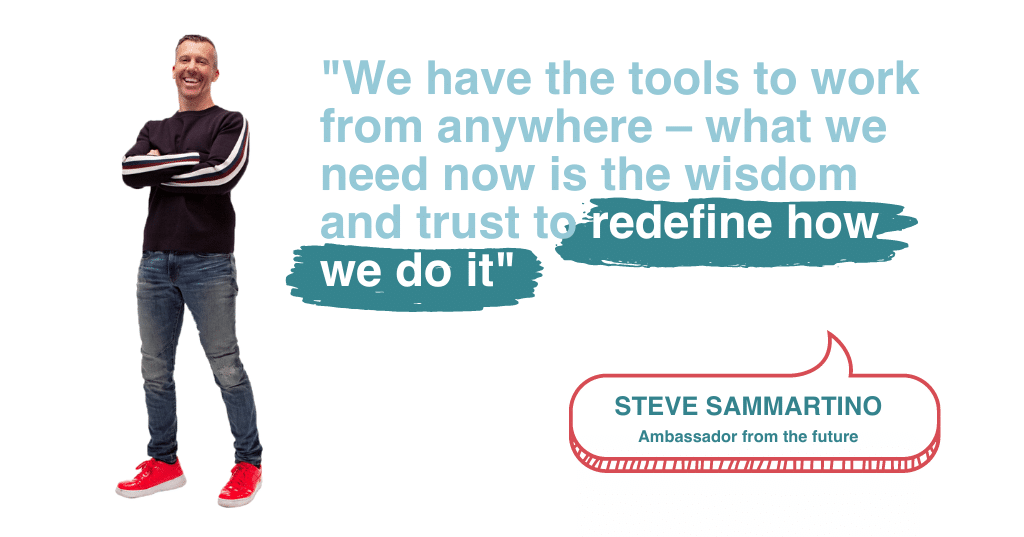The Future of Work

Are the Robots taking over?
The robots are taking over. Seriously, they are. But this isn’t a new phenomenon. All jobs eventually get replaced by tech. Ploughs for famers, machines for labourers, and now the microchip is coming for the white collars. We once thought automation only the enemy of manual labour. But us humans are so clever, we are finding new ways to replace ourselves! The good news is that the robots are taking lots of the repetitive, crappy and dangerous jobs. To be honest, they are actually taking a few of the good ones too…but there are not that many bison hunters anymore.
But the ‘new jobs’ story doesn’t get much coverage. People prefer to click on an article which threatens job losses. In recent years we have seen a large number of new jobs arrive and the list is very long. But here’s a tiny sample; UX Designer, App Developer, Drone Pilot, Digital Community Manager, Airbnb Host, Bitcoin Miner, Search Engine Optimiser, Data Security Specialist. What’s interesting is that most of these new gigs aren’t heavy STEM based roles – they are actually very human in nature. They are all learnable, and mostly at low cost.
And in the near future we can also expect a new list of weird and wonderful types of work to emerge. What about Robot Ethicist, Carbon Footprint Analyst, Data Commodities Broker, Digital Memory Archivist, Privacy Advisor, NFT Curator, Crypto Energy Consultant, Rolling Office Re-Fitter, or even an off-world Habitat Designer… Every piece of new technology, brings with it both new work and investment opportunities.
Work Post-COVID
In 2020 – the way we work got disrupted forever with the COVID crisis. We all had to hunker down in our homes with our laptops. In all probability this has ushered in the end of the cubicle farm. But what it isn’t the end of, is human interaction and our need to get together in the same space.
But yes, the future will be different. The office wont’ be a place we go to do work – it will become a place we go to interact, cross fertilise ideas, plan work, build relationships and solidify our informal networks. Work will become a hybrid of on premise and off premise interactions, and right now we are quickly figuring out what that looks like. We are working out when we need to be in the presence of each other (hint, it’s more than we think), but it certainly isn’t 9-5 or 5 days a week. We have the tools to work from anywhere – what we need now is the wisdom and trust to redefine how we do it.
Work & Society
This shift will have a bigger impact on society than we might think. The shape of our cities, homes and offices will go through a rapid change.
Offices will look more like homes; they’ll have screening rooms, gourmet kitchens and eating spaces, and will be filled with soft furnishings and collaboration spaces. While our homes will end up with ‘gourmet offices’ instead of a little desk hidden under the stairs. We’ll have virtual reality meeting rooms and technology as advanced as you’ll see in any corporate head office.
We also cannot underestimate the positive impact hybrid work will have on society. Once our foolish peak hour travel to offices is reduced, our options of where we can live, changes too. We won’t be trapped in suburbia and might live nearer the mountains or coast, or where housing is more affordable. Workers will be happier when they can spend less time commuting and more time with family and friends.
But yes, there’s risk. Once we get good at working remotely, some roles will be lost to low cost labour markets overseas. But the reverse is also true – locals in Australia could well arbitrage our cheaper currency and work in places like the USA from here. What about ‘local expats’!! But as we learned during COVID – physical presence matters more than we think. We are, by our very nature, a social species and smart companies will work hard to maintain a physical and social connection with staff and reap the benefits that only interpersonal human connection can create.
In simple terms, technology makes things faster and more efficient. And what that does is reduce costs and free up money for both consumers and businesses which can then be invested in other areas. For every job technology takes away, it usually adds two. Just think about the horse and cart versus the automobile; the number of jobs which arrived since the car are infinitely larger than when we relied on our trusty steed. Likewise, you can’t have apps, social media and even ‘YouTubers’ until you have the smart phone.
Humans invent jobs as new industries and technologies emerge. We surround the new with people – it’s like a force of gravity. People aggregate around money and commerce. And yes, some good paying jobs do disappear, but some other high paying ones arrive too.
The good news is that the really important skills of the future are the very human ones. First, we replaced muscle with machines, and now we are replacing left brain logic with artificial Intelligence. What we truly need is creativity, empathy and humanity… Even if a robot could hold our hands and comfort us, I’d much rather a human do it.
There will winners and losers in all this… there always is – but it’s never been more possible to up-skill, re-skill or get new-skills in the history of humanity. And mostly for free…. With access to the tools we have, the thing we get…. is the dignity of choice.
Find out more about Steve here Browse Future of Work Speakers